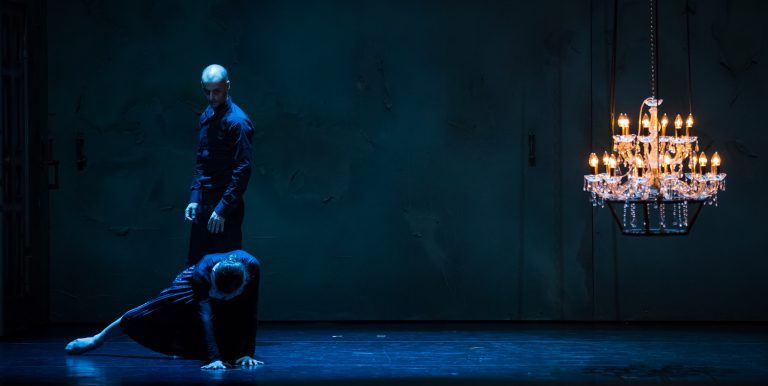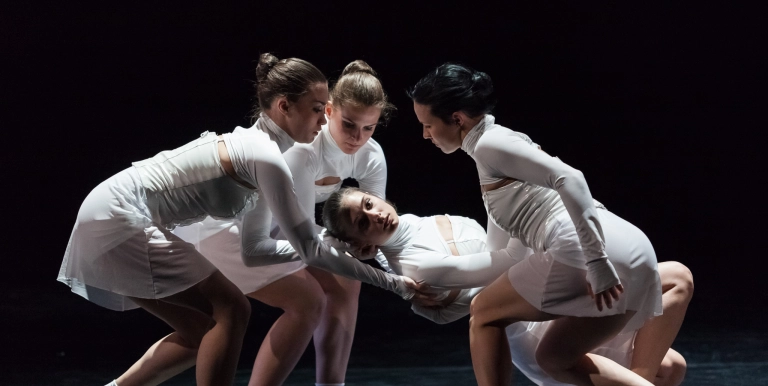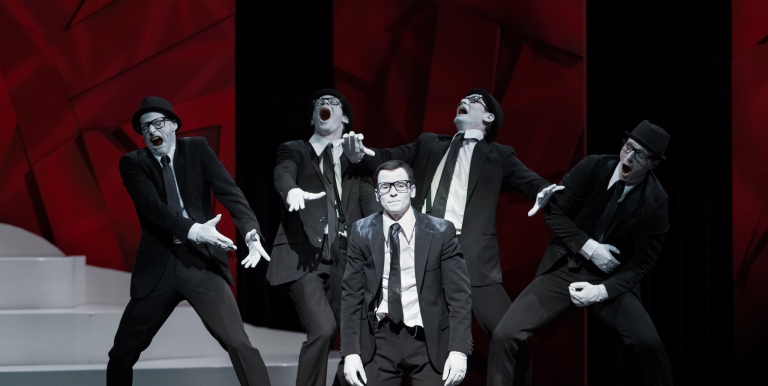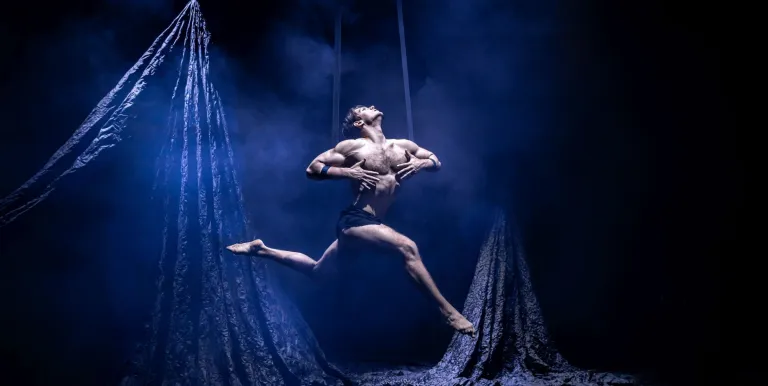Moderato Cantabile:
Shadows and Desires:
Catulli Carmina:
'You are an extension of me,
you are me myself, at the bottom of me.
You. There is no other form
of the world,
that rests in my heart,
and touches me so.
You are the dearest form of the world,
you are my home.
Without you I am far away,
although from what, I do not know,
but it is very very far.
The world is a little filthy away from you,
from your true me.'
(Mariangela Gualtieri)
Moderato cantabile is about passion and absence: evoking the life of the emotions, it attempts to speak of love without actually achieving it, instead simply depicting the map that lurks beneath it. There is a room on the stage which exists – outside of space and time – according to fixed and permanent formulas. The figures arrive in this space, into the space of 'being elsewhere', where they leave indelible traces of themselves: departing on different paths whose trails reveal areas of freedom, even if in an illusory and volatile form.
The law of inertia was formulated by Isaac Newton in his Philosophiæ Naturalis Principia Mathematica, and is generally known as Newton's First Law. It states that any body will remain at rest or in motion at the same speed and in the same direction until acted upon by another body or field. Based on Stephen King's principle that 'everything is connected to everything else', this law can be taken from physics and applied to the relationship between life and fate. This inertia also has an effect on human existence: whatever happens to us, whether it is good or bad, is guided by our fate. What Shadows and Desires has to say, in the language of dance, is that no matter how much we feel that we are the true masters of our lives, this is a fanciful conceit. In reality, we are only shadows following the will of machinery operating according to the plan of an unfathomably great intelligence. All we are given is the chance to grasp, understand and interpret the events that occur around us. We are not the ones who cast shadows on the world, but are ourselves the shadow, which in the delirium of its desires helplessly follows events as they unfold.
Carl Orff constructed his work around the verses of Catullus, one of the ancient world's most important writers of lyric poetry. Catullus wrote passionate, often naughty, verses about the relationship between men and women, love, physical desires and psychological infatuation. Catulli Carmina uses an energetic and playful musical language to portray what is sometimes a somewhat racy theme, while the dancing explores the mysteries of the attraction between the two sexes in a funny, not to mention spicy and light-hearted style – as a farce about the rite of fertility.
Media Sponsors: Rádió88, Marie Claire, Kultura.hu, Táncélet.hu, Délmagyarország
Sponsored by: Municipality of the Urban County of Szeged, National Theatre of Szeged, Ministry of Human Capacity, National Cultural Fund, Novotel Hotel (Szeged), CE Glass Company, Slim City Beauty and Health, Cool Service (Szeged), Busz Travel (József Császár), Hét Kávézó Coffee Shop, Foundation for Contemporary Ballet
Presented by: National Dance Theatre
-
We wish to inform you that in the event that Müpa Budapest's underground garage and outdoor car park are operating at full capacity, it is advisable to plan for increased waiting times when you arrive. In order to avoid this, we recommend that you depart for our events in time, so that you you can find the ideal parking spot quickly and smoothly and arrive for our performance in comfort. The Müpa Budapest underground garage gates will be operated by an automatic number plate recognition system. Parking is free of charge for visitors with tickets to any of our paid performances on that given day. The detailed parking policy of Müpa Budapest is available here.











